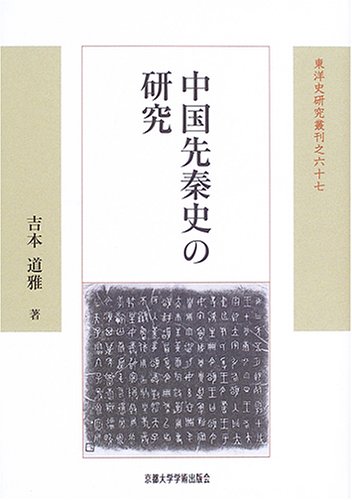5 0 0 0 IR 周室東遷考
- 著者
- 吉本道雅
- 雑誌
- 東洋学報 / The Toyo Gakuho
- 巻号頁・発行日
- vol.71, no.3, pp.253-276, 1990-03
This article is an attempt to reconstruct the concrete political process of the eastward-transfer era, bringing the trend of the Chou dynasty into focus, as much as possible, and to make clear the political circumstances of the Central Plain at that time. These circumstances conditioned the Hsiao-pa 小伯, or the "minor hegemony", of the Ch'i 斉 state, that preconditioned the hegemony of Huan-Kung 桓公 of the Ch'i state.The Zheng-yü 鄭語 of the Kuo-yü 国語 describes the ruin of Yu-wang 幽王 of the Chou dynasty, that caused the eastward-transfer. The Chou-pen-chi 周本紀 of the Shih-chi 史記 relies heavily on the Zheng-yü, but according to the Ku-pen Chu-shu-chi-nien 古本竹書紀年, the description of the contention between P'ing-wang 平王 of the Chou dynasty and the Jung 戎 nations and of the eastward-transfer to Lu-yang 洛陽 of 770 B. C. caused by this conflict is unreliable. Concerning the date when Lu-yang was made the capital the Shih-chi doesn't offer adequate information perhaps because the editor lacked sufficient original material. According to the Tso-chuan 左伝 commentary, it occurred after 738 B. C. So the description about these incidents of the Ch'in-pen-chi 秦本紀 and of the Wei-shih-chiah 衛世家 just as in the case of the Chou-pen-chi, are considered to have been secondarily created. The first stage of the eastward-transfer era was the time of the installation of P'ing-wang by the states of Shen 申, Lu魯and others in the Shen state. At that time, Huan-kung 桓公 of the Zheng 鄭 state conquered the area about Lu-yang, and proved himself independent of P'ing-wang and Hsieh-wang 携王. But Wu-kung武公 who succeeded Huan-kung submitted to P'ing-wang, and then, Wen-hou 文侯 of the Chin 晋 state supported P'ing-wang, and ruined Hsieh-wang. The second stage of the eastward-transfer era was the time of the loyalty of the Chin and Zheng states to the Chou dynasty. After the death of Wen-hou, civil war broke out in the Chin state. The Zheng state overwhelmed the states, namely, Shen, Lu and others, that installed P'ing-wang during the first stage, and transferred the control of the area about Lu-yang to P'ing-wang, and had him make Lu-yang the capital of the Chou dynasty. The third stage of the eastward-transfer era was the time of Zheng's monopoly of the influences to the Chou dynasty because of the civil war of the Chin state.From the eastward-transfer era to the early Spring and Autumn period, the major states expanded their territories. They attempted to bring the surrounding areas under their domination, and to subdue the minor states about them. The expansion of the major states made their conflict with each other constant, and made their control of the Kuo-jen 国人 unstable. This situation prompted drafting various treaties that ultimately aimed to settle these contentions. The "minor hegemony" of the Ch'i state was the expression of the integration of such treaties.
